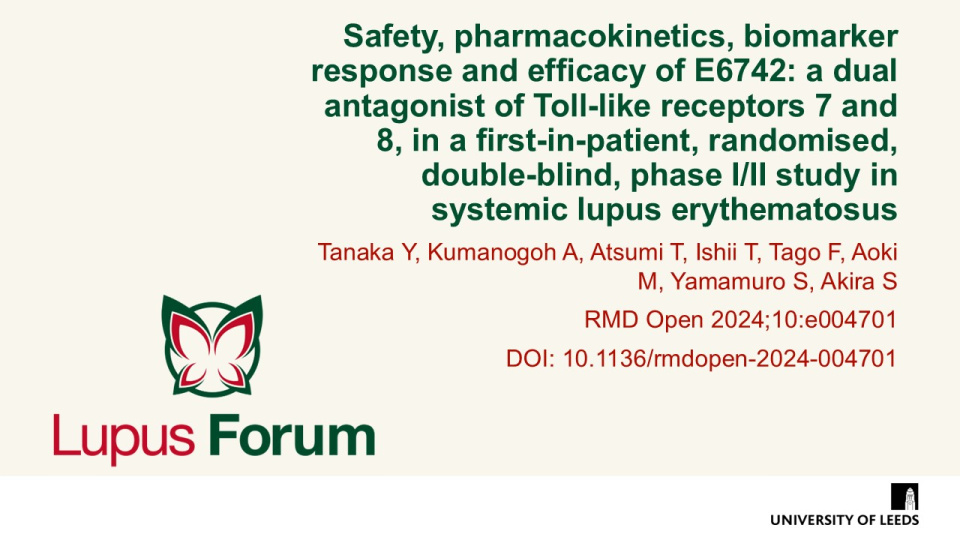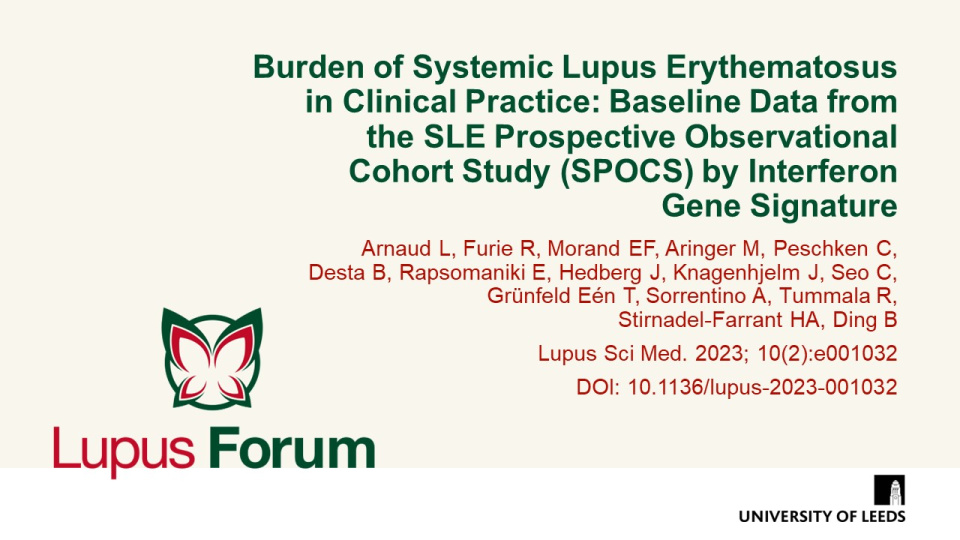Publications
Find coverage of the latest original articles on Lupus, focusing on those with data on therapeutic interventions and those that have clinical impact.
Safety, pharmacokinetics, biomarker response and efficacy of E6742: a dual antagonist of Toll-like receptors 7 and 8, in a first-in-patient, randomised, double-blind, phase I/II study in systemic lupus erythematosus
RMD Open 2024;10:e004701 DOI 10.1136/rmdopen-2024-004701
Tanaka et al. conducted a phase I/II study to evaluate the safety, pharmacokinetics, biomarker response, and efficacy of E6742, a dual antagonist of Toll-like receptors 7 and 8, in patients with systemic lupus erythematosus (SLE). The treatment demonstrated a favourable safety profile, with no serious adverse events, while effectively suppressing interferon gene signatures and showing promising preliminary efficacy.
Burden of Systemic Lupus Erythematosus in Clinical Practice: Baseline Data from the SLE Prospective Observational Cohort Study (SPOCS) by Interferon Gene Signature
Lupus Sci Med. 2023; 10(2):e001032 DOI: 10.1136/lupus-2023-001032
This study from Arnaud et al described baseline characteristics of SLE patients grouped by disease activity and IFNGS category in the international SPOCS study. IFNGS-high patients were younger at SLE diagnosis, and a baseline SLEDAI-2K score ≥10 was associated with shorter disease duration, more frequent and more severe flares. IFNGS-low patients were more likely to exhibit musculoskeletal and CNS comorbidities than IFNGS-high patients. Continuation of the SPOCS study will allow investigation into how different baseline characteristics affect long-term outcomes in SLE patients.



